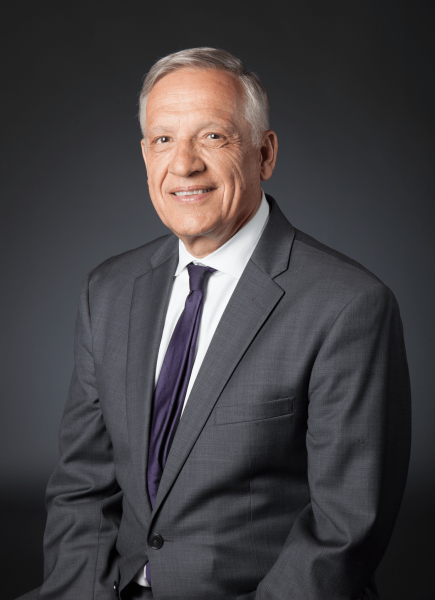Dean’s Message: Twin (Converging) Moonshots: Health and Computing

Last year, USC Viterbi received two extraordinary naming gifts for the Alfred E. Mann Department of Biomedical Engineering and the Thomas Lord Department of Computer Science. Honoring biomedical engineering pioneer Al Mann and engineering entrepreneur Thomas Lord, these two transformative gifts strengthened even further the prowess of the school in the two domains of health and enriching life. They also highlighted, in an ingenious way, USC President Carol L. Folt’s launch of two university-wide moonshots in health and the Frontiers of Computing.
This magazine and the parallel edition of USC Trojan Family Magazine will expand at length on the details of the two initiatives, which also include the creation of a new School of Advanced Computing within USC Viterbi. But here, I wanted to stress how interconnected these two moonshot initiatives are and how advances in health require advances in advanced computing.
The ever-tighter relationship between medicine and engineering has been singled out for centuries, although formal, strong manifestations came to life less than half a century ago when biomedical engineering became a new engineering discipline. Our Department of Biomedical Engineering was founded in 1976 and, now named after Mann, will celebrate its 50th anniversary in 2026. At about the same time, computer science, driven and enabled by another symbiotic partnership, this time with electrical engineering, started a digital revolution, the pace of which today has the features of an approach to a mathematical singularity. The newly christened Thomas Lord Department of Computer Science will celebrate its 50th anniversary in 2024.
In the context of health and medicine, it takes little imagination to see how engineering and advanced computing will enable truly transformational changes, whether via artificial intelligence, new biomedical devices and operations or synthetic biology. Their future is exhilarating.
But health is not simply a biomedical enterprise. Consider that wellness is the quintessence of health. More than its manifestation as a biomedical state, it also has a substantial societal dimension, ranging from mental health to strong, equitable and uplifting education. In other words, to enrich life. It is therefore imperative to think about health more holistically, and in a way that engages many other disciplines and human endeavors, from the sciences to the arts. In this quest, we are fortunate to be part of a university with multidisciplinary strengths in so many different areas that advance the human mind and the human spirit.
We see that convergence and system complexity, in which technology and humanity interact closely, are characteristics of engineering in today’s world. These two key elements characterize the National Academy of Engineering’s Grand Challenges Scholars Program, co-founded by USC Viterbi in 2009. Last year, the NAE recognized its impact and innovativeness by awarding it the 2022 Gordon Prize, given to the most significant engineering education innovation. This year, USC Viterbi was honored with the same award — unprecedented in the Gordon Prize’s history — this time for the pioneering (transdisciplinary) systems engineering work of Professor Azad Madni. The memorable event is covered in this issue.
Convergence, systems thinking, the intertwining of technology with humanity in sustainability, health security and enriching life. These attributes continue to characterize the evolution of engineering and will keep guiding our mission at USC Viterbi: to engineer a better world for all humanity.



